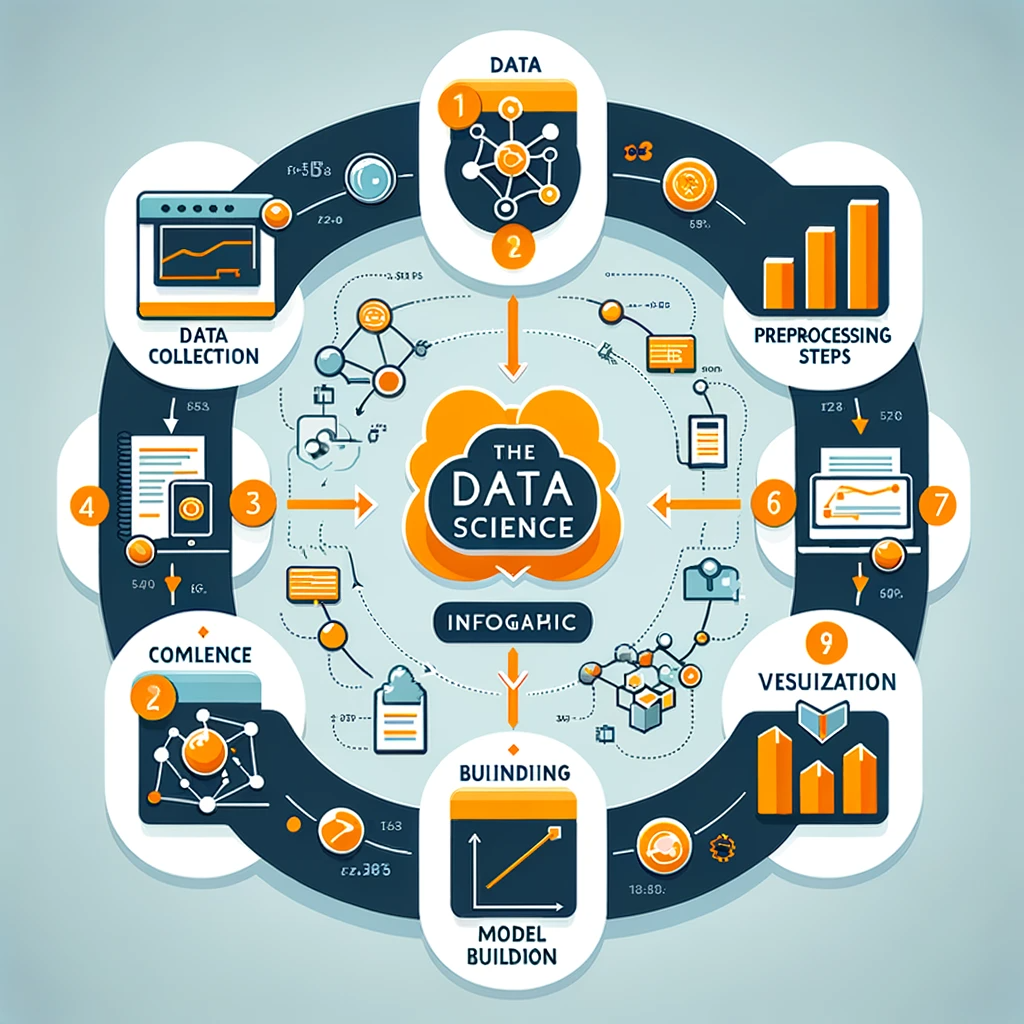Data Science: A Path Paved with Data Insights and Innovations
Data science is an exhilarating career path that merges statistics, computer science, and domain expertise to extract meaningful insights from data. In an age where data is proliferating at an unprecedented rate, data scientists are the modern-day explorers who make sense of this vast informational expanse to drive decision-making and innovation. Here is the conceptual image showing a network of industries connected by data streams to illustrate the demand for data science across various sectors in figure 1. Moreover, The figure 2 depicting a data scientist at work.


Why Choose a Career in Data Science?
Industry Demand: Data science has been labeled as the “sexiest job of the 21st century” by Harvard Business Review. The demand for skilled professionals is sky-high across all industries, from tech to healthcare, finance to retail. Organizations are on a quest to harness the power of big data, making data scientists highly sought after.
Impactful Work: As a data scientist, your work directly contributes to strategic decisions. Whether it’s improving customer experience, advancing medical research, or optimizing operations, the insights you provide can have significant impacts.
Continuous Learning: The field is ever-evolving, with new tools, techniques, and theories regularly emerging. For lifelong learners, this career offers an endless journey of growth and discovery.
What Does a Data Scientist Do?
A data scientist’s day might include:
- Data Exploration and Preprocessing: Before the magic happens, data scientists spend considerable time cleaning and exploring data to understand the patterns and anomalies.
- Modeling and Algorithms: Using machine learning algorithms, data scientists build predictive models that can forecast trends and outcomes.
- Data Visualization and Communication: After analyzing the data, the findings are visualized and communicated to stakeholders through reports and presentations, making the data understandable and actionable.\
In Figure 3 presented an infographic that outlines the key steps in the data science process.

How to Get Started?
Education: Most data scientists have a strong educational background in a quantitative field like computer science, mathematics, or statistics.
Skills: Proficiency in programming languages such as Python or R, knowledge of SQL for database management, and understanding machine learning algorithms are essential.
Projects: Building a portfolio of data science projects can demonstrate your skills to potential employers. From Kaggle competitions to personal data explorations, there are numerous ways to showcase your abilities.